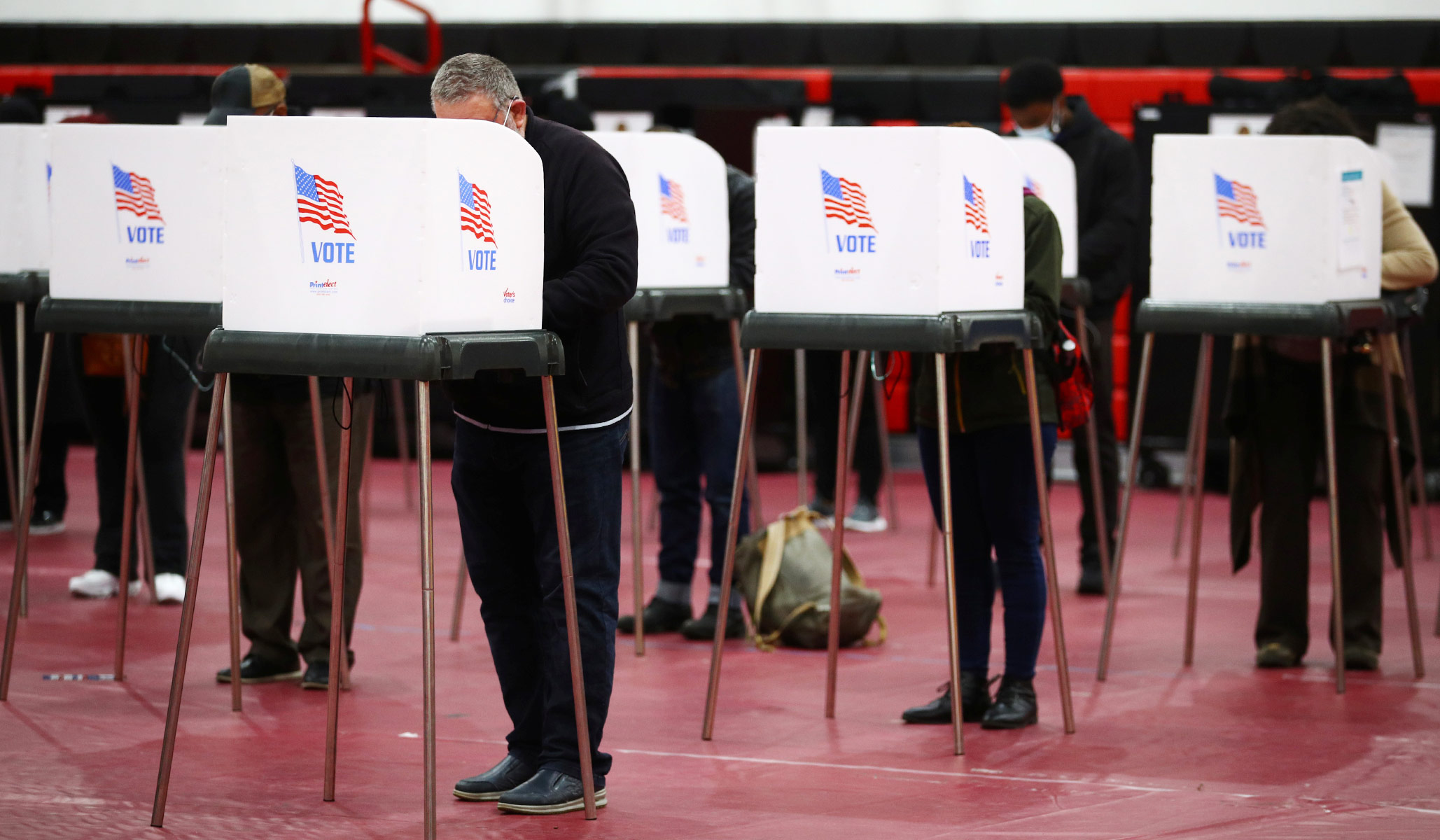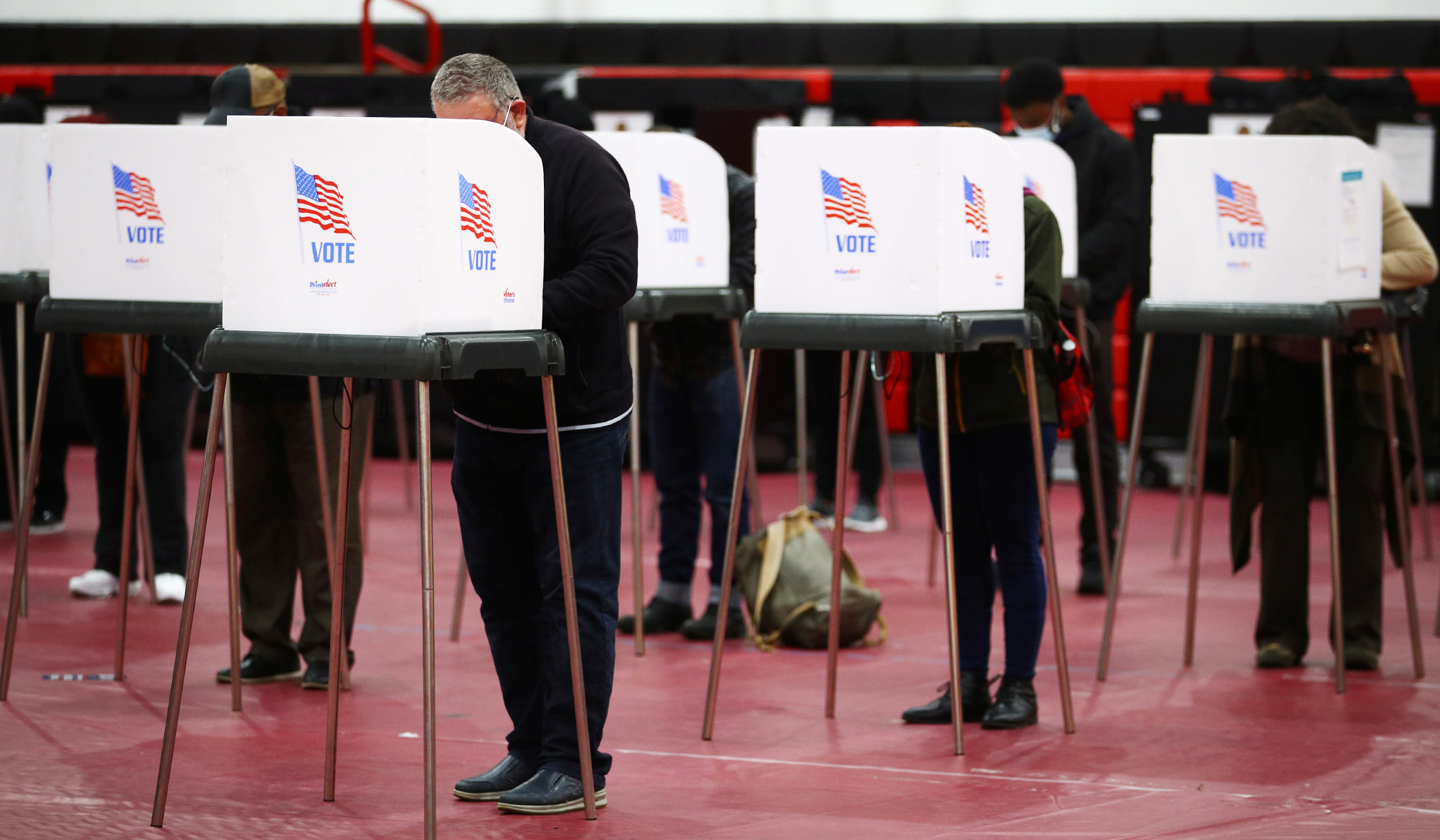
Jamelle Bouie argues, in the New York Times, as if it is some sort of revelatory “gotcha,” that the Constitution gives Congress power over elections, and therefore (1) what Democrats are proposing is not a “takeover” by the federal government of state authority and (2) everything they are trying to do is constitutional. Neither is true.
On the first point, Bouie completely ignores traditional practice in arguing that nothing much is changing. The Democrats’ current proposals would transfer a vast amount of authority to the federal government that it has never before exercised. They would, for example, micromanage what forms of identification can be used, how many days of early voting can be permitted, how long after Election Day ballots could be received, how a state can regulate mail-in ballots, and by whom a voter’s ballot could be handled. Nobody really disputes that this would be a federalization of the mechanics of voting and elections that is unprecedented in our history. It goes far beyond simply preventing states from stripping voters — in law or in fact — of the franchise. The proposals are, in fact, a federal takeover of powers traditionally exercised by states and localities, and Democrats fail to present the sort of extraordinary justifications that would support such a radical move.
On the second point, Bouie attacks a straw man: “The clear implication of the Republican argument is that any federal regulation of state elections is constitutionally suspect.” But just because Congress has extensive powers does not mean that those powers are unlimited. Legal challenges to the Democrats’ bills, if they were to be enacted, would be targeted more precisely. For example, even aside from constitutional issues with other parts of the “Freedom to Vote Act” — such as its regulation of political speech — the bill goes deep into the process of voter registration and the maintenance of voter rolls, well beyond questions of “the Times, Places and Manner of holding Elections” or the denial of the right to vote. It is far from clear from the text or history of the election clauses or the Reconstruction Amendments that Congress has the same plenary regulatory power over the voter-registration process that it has over, say, where and when votes can be cast.
There is, of course, some federal authority in this area, because the 15th Amendment would be a dead letter if Congress could not stop states from simply making it illegal or impossible for black Americans to vote. That is not a hypothetical possibility if you look at how registration worked in the Jim Crow–era South; consider the South Carolina voter-registration scheme that led Congress, in 1894, to refuse to seat the winner of an election because of how the registration rules were abused to disenfranchise black voters:
The House found a constitutional violation because voters could be registered only in one place, and only on one day a month from December to June. Moreover, as the House report found, “The testimony shows that many voters, some of them coming 30 or 40 miles, appeared regularly at the places of registration from month to month, and were denied registration by means of a systematic obstruction” so the issue went well beyond even a purposely onerous law. This was not a case of hypothetical “suppression”: Over 7,000 legally qualified voters signed petitions stating that they had attempted to vote and had been refused.
Nothing remotely resembling that justifies the Democrats’ current bills to bulldoze commonsense rules for registering voters and maintaining the rolls. As even Bouie concedes about “voter suppression laws,” they “do not appear to have a substantial impact on rates of voting, and overall voter turnout has increased significantly since the Supreme Court undermined the Voting Rights Act in 2013.”
Democrats are aiming at a problem without evidence that it exists, and they are proposing sweeping legislation that drastically alters the traditional federal-state balance, and takes Congress far afield from its constitutional powers, in doing so. Of course sensible people should oppose that.

